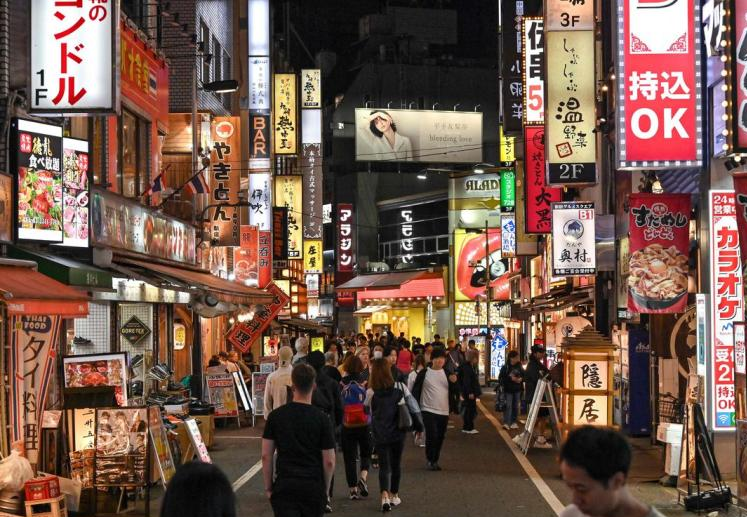
Not only are the Japanese less likely to travel abroad, they are less likely to travel at home. According to a report released by the Japan Tourism Agency, most of the tourists welcomed by Japanese hotels are overseas tourists, and the number of Japanese tourists is basically negative. The only increase this year was during the cherry blossom season in April, which saw an increase of just 0.3%.
According to the report, with the depreciation of the yen and inflation, the number of Japanese tourists staying at home has deteriorated, and the number of Japanese tourists from December to August this year was basically lower than the previous year.
A 40-year-old Japanese office worker in Tokyo took his family to Awaji Island in Kansai for a one-night stay during the Obon Festival in August, costing more than 100,000 yen, or a third of his monthly salary.
On this trip, he complained: "In order to save travel costs, we have to save in other aspects, choose not to take planes and Shinkansen, is early in the morning to drive more than eight hours to reach the destination." If I had known that, I would have chosen the suburbs of Tokyo."
According to the Consumer Price Index, hotel room rates in Japan are currently nearly twice as expensive as they will be in 2020, especially in the Tokyo metropolitan area and Kansai metropolitan areas, and hotel prices have also led Japanese people to avoid lodging and tourism in major cities.
"A few years ago, when I used to visit Osaka and Kyoto, hotel room rates were around 15,000 yen," said a woman in her 20s who lives in Shimane Prefecture. Now that the price has doubled, I have canceled trips far away and only go to places that are within a day's drive."
The stagnation of accommodation and tourism will become a trend
After the coronavirus outbreak, there was a period of retaliatory consumption in Japan, but this phenomenon has disappeared due to the depreciation of the yen and the currency. Takuma Yasuda, a researcher at Nikko Institute of Basic Research, said that rising food prices have made people more cautious about traveling. "If Japanese wages don't get a bigger rise, then the Japanese will have to cut back on travel and leisure." The stagnation of Japanese accommodation and tourism is not a temporary phenomenon. It will become a trend.
However, the Japanese hotel industry has not been idle because of the decline of Japanese people to stay and travel. According to the authorities' survey of the service sector, sales in Japan's hotel industry have been steadily rising since the end of 2021, when the government relaxed entry restrictions after the outbreak.
A steady stream of incoming foreign tourists is propping up Japan's hotel industry, and as long as the demand exists, hoteliers won't cut prices to attract Japanese guests, the Nikkei reported. It also predicts that the hotel industry will continue to push up rates because of a shortage of workers who must pay higher wages to retain workers. Rising prices in the hotel industry have also reduced the willingness of Japanese people to stay and travel.
It is understood that in order to keep hotel prices reasonable in the capital area and the big cities of Kansai, which are popular with foreign tourists, the authorities intend to direct foreign tourists to the less-visited rural areas of Japan.

On January 4th local time, Trump warned India that if it does not limit its purchase of Russian oil, the United States will continue to raise tariffs on Indian products. Trump's latest warning sent shockwaves through the Indian financial market in just one day.
On January 4th local time, Trump warned India that if it do…
In October 2025, the US trade deficit narrowed unexpectedly…
According to the British media CoinJournal, recently, due t…
In January 2026, US President Trump once again set his sigh…
Europe is facing a crucial strategic choice: In the face of…
On New Year's Day 2026, BMW China announced a "systematic v…